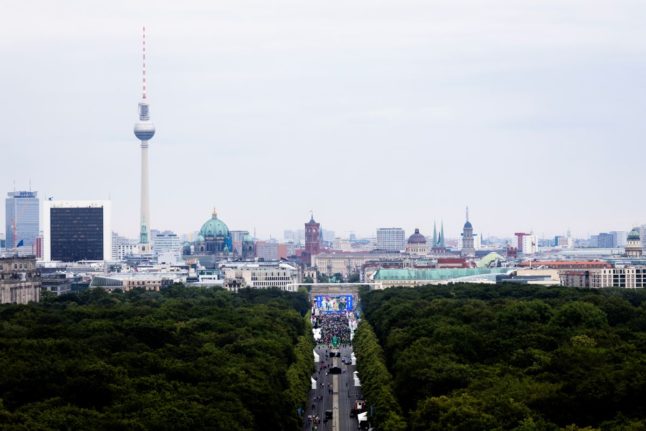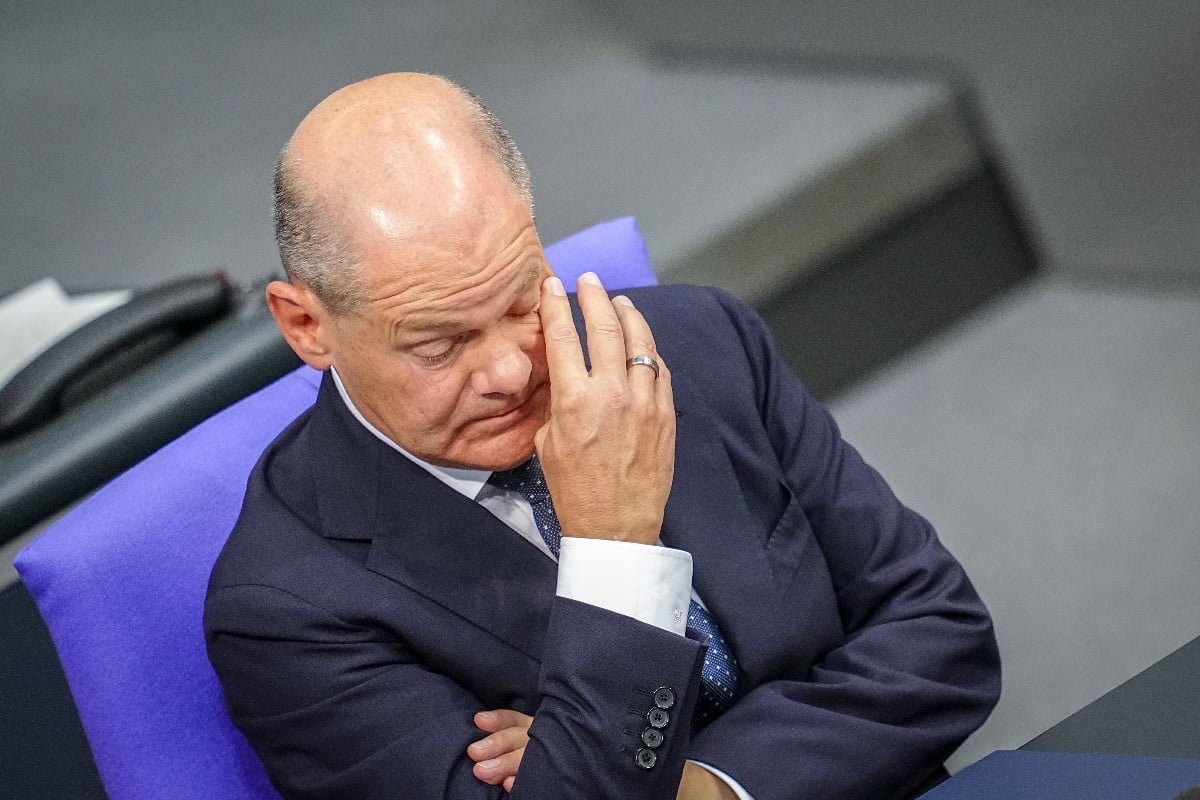EU warns German-style border controls must be ‘exceptional’
The European Union has cautioned that border checks within the bloc could be introduced only as an “exceptional” measure, after Germany tightened controls in response to several suspected Islamist attacks.
Germany on Monday said that temporary controls would be extended to its land borders with all nine of its EU neighbours.
The European Commission said that member states were allowed to take such a step to address “a serious threat”, but that the measures needed to be “necessary and proportionate”.
“These types of measures should remain strictly exceptional,” a spokeswoman said.
READ ALSO: How Germany’s increased border checks will affect travel from neighbouring countries
Germany is a part of Europe’s Schengen area, which includes 25 of the 27 EU member states, as well as other countries, and allows free travel between them without border controls.
The commission said it was notified by Germany of the temporary restrictions and would assess them.
Brussels and Berlin were in touch over the issue, it said.
Meanwhile, Polish Prime Minister Donald Tusk called the decision “unacceptable”.
“Rather than greater controls of our border, Poland needs greater participation of countries, including Germany, in guarding and securing the European Union’s external borders,” he added.

The controls on the borders with France, Luxembourg, Belgium, the Netherlands and Denmark will come into force on September 16th for an initial six months.
They will add to temporary checks Germany already has in place along its borders with Austria, Poland, the Czech Republic and Switzerland.
Part of Dresden bridge collapses
Dresden emergency crews are on scene after about a 100 metre section of the Carolabrücke in Dresden collapsed.
Crews arrived on the scene at around 3 am on Wednesday to find a section of the bridge had fallen into the River Elbe.
No injuries were reported. Residents have been urged to stay clear of the area.
READ ALSO: Bridge partially collapses in Dresden
Germany’s Volkswagen cancels collective agreement on job security
German auto giant Volkswagen is cancelling several of its in-house collective agreements which could result in job cuts.
It means that the current company wage agreements and the job security stipulated in them will expire at the end of this year. According to reports, the company also wants to renegotiate the pay of its employees, managers and temporary workers.
The company informed trade union IG Metall on Tuesday. If the union and the car manufacturer do not agree on a new job security agreement, VW could dismiss its employees for operational reasons from July 2025. The agreement was set to be in place until 2029.
Last week VW said it could take the unprecedented move to close production sites in Germany and threatened further job cuts as its savings plans stalled. Bosses blame rising costs eating into profits.
Unions and government officials responded with alarm to the idea of plant closures in the group’s home market, a decision never before taken by Volkswagen.
READ ALSO: Volkswagen mulls plant closures and job cuts in Germany
Germany ‘sets example’ with debt discipline, says Lindner
Germany’s strict fiscal discipline sets an example in Europe, Finance Minister Christian Lindner said Tuesday, as he again rebuffed a proposal for joint EU borrowing to boost the bloc’s competitiveness.
“Germany must lead by example and not only follow its own rules but especially also European rules,” Lindner told lawmakers in Berlin as he unveiled a 2025 draft budget that adheres to self-imposed debt rules.
“What effect would it have if Germany, as the largest economy in the European Union, intentionally broke the European Stability Pact?” he asked. “It would be an invitation for all others to no longer respect these rules.”

Several member states including France and Italy are under pressure from Brussels to get their finances back within EU rules, which demand a budget deficit below three percent of gross domestic product.
Germany has gone further, imposing a “debt brake” that caps annual new borrowing to 0.35 percent of GDP.
READ ALSO: How deep does the German fear of debt go?
Berlin lifted the cap from 2020 to 2023 to weather the fallout from the coronavirus pandemic and Russia’s war in Ukraine, but reinstated the debt brake last year and aims to maintain it in 2025 despite a struggling economy.
Lindner, whose pro-business FDP party champions fiscal rigour, also reiterated his opposition to a call for joint EU borrowing as unveiled in a report by former European Central Bank President Mario Draghi on Monday.
BMW recalls 1.5 million cars over bad brake
BMW said on Tuesday it was recalling about 1.5 million vehicles due to problems with their brakes and cut its outlook for the year, sending the German luxury carmaker’s shares tumbling.
The recall will have a “negative worldwide sales effect in the second half of the year,” said the group, which also includes the Rolls-Royce and Mini brands.
The financial impact in the three months to the end of September will be in the “high three-digit million” euro range, it said.
It was further bad news for BMW, which has been hit by weakening demand in China, and for the broader German auto sector after Volkswagen said last week it was mulling the unprecedented step of closing factories in Germany.
The braking system behind the problems was supplied by Continental, a source close to the matter told AFP.
As well as the impact of the recall, “the ongoing muted demand in China is affecting sales volumes. Despite stimulus measures from the government, consumer sentiment remains weak,” BMW said in a statement.
Munich-headquartered BMW now expects a slight decrease in vehicle deliveries this year compared to last, having previously forecast a slight increase.
It did not give a precise figure. In 2023 deliveries of BMW, Rolls-Royce and Mini vehicles stood at 2.56 million.
Last month BMW also recalled 1.4 million vehicles in China due to faulty airbags.
Germany, France and UK slap sanctions on Iran over missiles for Russia
Germany, France and Britain have condemned what they said was Iran’s delivery of ballistic missiles to Russia for use in the Ukraine war and declared new sanctions targeting air transport.
“We will be taking immediate steps to cancel bilateral air services agreements with Iran,” the three European countries said in a joint statement, adding that they would also “work towards imposing sanctions on Iran Air”.
US Secretary of State Antony Blinken earlier had said, on a visit to London, that Russia had received shipments of the ballistic missiles and “will likely use them within weeks in Ukraine”.
London, Paris and Berlin said that, despite their warnings of “new and significant measures against Iran” in case it sent missiles, “we now have confirmation that Iran has made these transfers”.
“This is a further escalation of Iran’s military support to Russia’s war of aggression against Ukraine and will see Iranian missiles reaching European soil, increasing the suffering of the Ukrainian people,” they said.
“This act is an escalation by both Iran and Russia, and is a direct threat to European security.”
The three countries said they “will be taking immediate steps to cancel bilateral air services agreements with Iran”.






 Please whitelist us to continue reading.
Please whitelist us to continue reading.
Member comments